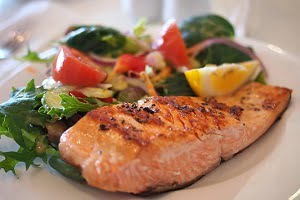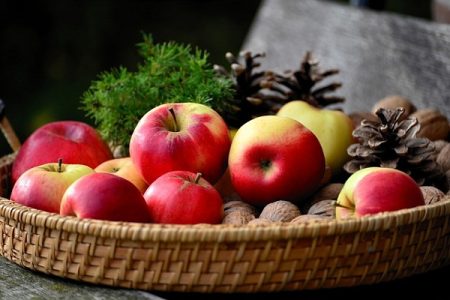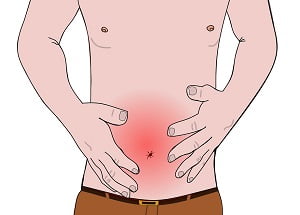Foods That Can Cause Food Poisoning
- Updated on: Jul 2, 2024
- 5 min Read
- Published on Nov 27, 2021

Food poisoning occurs due to the consumption of food contaminated by bacteria, viruses, or parasites. Some foods are more likely to cause food poisoning symptoms than others because they are more susceptible to bacterial growth.
Which Foods Can Cause Food Poisoning?
Generally, food poisoning takes a few days or more than a week to develop, so it becomes difficult to understand sickness’s basic cause. Knowing about the foods that may lead to food poisoning is therefore important for avoiding this condition. Following are some of the food items that may cause food poisoning:
Deli Meat
Unprocessed deli meats may be a source of food poisoning if contaminated with Listeria and Staphylococcus Aureus. Deli meats include ham, bacon, salami, and hot dogs. Contamination of deli meats may occur due to improper hygiene, such as the use of unclean slicer blades. Most commonly, Listeria and other bacteria contaminate the meat after being cooked or before packaging. Therefore, it is important to cook deli meats, particularly at 75?Celcius, before eating. Such meats should be stored at 5? degree temperature to avoid any unwanted bacterial growth.
Fish and Shellfish
Consuming contaminated fishes may also lead to food poisoning. Different types of food poisoning caused by fishes include scombroid poisoning, ciguatera poisoning, and shellfish poisoning.
If fishes are not stored at an appropriate temperature, there are high chances of histamine contamination. Histamine is a toxin produced by bacteria inside the fish. This toxin chemical cannot be destroyed even after cooking, resulting in food poisoning called scombroid poisoning.
You may develop ciguatera food poisoning if you eat the fish that is contaminated by ciguatera toxin. Like histamine, this toxin is also heat-stable and therefore cannot be destroyed while cooking.
Shellfishes typically consume algae-like organisms called dinoflagellates that secrete different harmful toxins. These toxins may cause food poisoning in humans who consume shellfishes. Different shellfishes such as oysters, clams, and mussels can be a source of shellfish poisoning. Some of the common types of food poisoning caused by shellfish are neurotoxin, paralytic shellfish poisoning, and amnesic shellfish poisoning.
You should be careful while purchasing shellfish from a food store and ensure to keep it under proper refrigeration. Avoid shellfishes caught from unmonitored areas as they could be unsafe to consume. Such fishes may be contaminated with sewage, stormwater drains, and septic tanks.
Rice
Rice is one of the staple foods for more than half of the world’s population and is considered a high-risk food for food poisoning. Uncooked rice may be contaminated with spores of Bacillus cereus, which may result in food poisoning. These bacterial spores may get activated on cooking, and if the cooked rice is left unused, these bacterial spores may turn into harmful bacteria under moist conditions. To avoid this condition, serve the rice immediately after cooking and keep the leftover food under refrigeration.
Unpasteurized Milk
The pasteurization of milk is when the milk is heated at a specific temperature to kill the harmful microorganisms. Dairy products are pasteurized to make them fit for human consumption. Unpasteurized milk may get contaminated with harmful bacteria and parasites such as Brucella, Campylobacter, Cryptosporidium, Escherichia coli, Listeria, and Salmonella. All these microorganisms may cause food poisoning and may be harmful to human health.
To reduce the risk of food poisoning due to unpasteurized milk, always use pasteurized dairy products and keep them refrigerated at 1.6 to 4.4?Celcius within 2 hours of preparation.
Eggs
Eggs are widely used dairy products. Uncooked and raw eggs can be a source of food poisoning and may affect human health. The eggs may get contaminated with Salmonella entrica bacteria before the shell formation. The infection usually occurs when the birds that lay them are already infected with Salmonella. Sometimes the eggs may be contaminated with the fecal matter of the infected birds also. Consuming such eggs may be a source of food poisoning in humans.
If you keep the eggs refrigerated at 4.4? Celsius, it may reduce the risk of food poisoning. Avoid using dirty and cracked eggs, as they are more susceptible to Salmonella bacterial infection. Eggs should be cooked thoroughly until the yolks are firm.
Fruits
Fruits like berries and melon and pre-prepared fruit salads can be a source of food poisoning. Even the fruits grown on the ground, such as cantaloupe (rockmelon), watermelon, and honeydew melon, may also be food poisoning sources. The conditions required for these fruits’ growth are warm and humid, perfect breeding grounds for bacteria such as Listeria and Salmonella. Such bacteria can grow on the skin of these fruits and may also affect the fleshy part of the fruit. Consuming these bacteria-contaminated fruits may result in food poisoning. To minimize the risk of food poisoning, wash these fruits thoroughly, and store them at the right temperature.
Raw Sprouts
Raw sprouts of any kind like alfalfa, sunflower, and mung bean are having high chances of getting contaminated with food poisoning causing bacteria like Salmonella, E.Coli, and Listeria. The sprouts usually grow in a warm and humid environment, which are ideal bacterial growth conditions. Since the sprouts are consumed raw, they are likely to cause food poisoning. Pregnant women are often advised to avoid consuming raw sprouts. To avoid the chances of food poisoning caused by raw sprouts, it is better to cook the sprouts before consuming them.
Leafy Greens and Vegetables
When leafy greens and vegetables such as lettuce, spinach, cabbage, and celery are eaten raw, they are more likely to cause food poisoning. The Escherichia coli bacteria may grow in the same soil where greens are grown, contaminating some vegetables. Besides, contaminated water and animal fecal matter may also transfer harmful bacteria into the vegetables grown on the farms. Consuming such vegetables may lead to food poisoning. Wash the vegetables thoroughly with water to reduce the risk of food poisoning.
Poultry
Undercooked poultry can be a cause of food poisoning because of the presence of Campylobacter and Salmonella bacteria. These bacteria contaminate the raw meat while processing and can survive until it is not properly cooked. Therefore, the proper cooking temperature is required to kill the bacteria causing food poisoning. When you are handling raw poultry, it is important to sterilize and clean everything in contact with the raw poultry meat, such as utensils, chopping blades, and your hands. This way, you can avoid cross-contamination.
FAQs
How Soon Can Food Poisoning Affect You?
The time taken for the appearance of food poisoning symptoms like diarrhea, vomiting, nausea, and abdominal cramps usually depends on the cause of infection. It has been noticed that most of the food poisoning symptoms show up within 1 hour to 10 days or longer after eating the contaminated food.
Can Shellfish Make You Sick?
Yes, eating contaminated shellfish including shrimps, crabs, and mussels can make you sick because shellfish consume dinoflagellates which produce harmful toxins in them. It may cause symptoms of food poisoning like nausea, dizziness, and diarrhea. The different types of shellfish food poisoning are neurotoxic shellfish poisoning, amnesic shellfish poisoning, and paralytic shellfish poisoning.
Is Food Poisoning Contagious to Others?
Whether food poisoning is contagious or not depends on which type of food poisoning you have. For example, food poisoning which is caused by Salmonella aureus, Campylobacter, and Norovirus is contagious to others. When you are sick from any of this food poisoning, your feces and vomit can infect other person who comes in contact with it.
Does Rice Cause Food Poisoning?
Uncooked rice may contain spores of bacteria Bacillus cereus, which can lead to food poisoning. These spores are heat stable and can survive even while cooking. If cooked rice is kept at room temperature, these spores may be grow into harmful bacteria due to a warm and humid environment. If you eat this rice, you are more likely to develop food poisoning.











